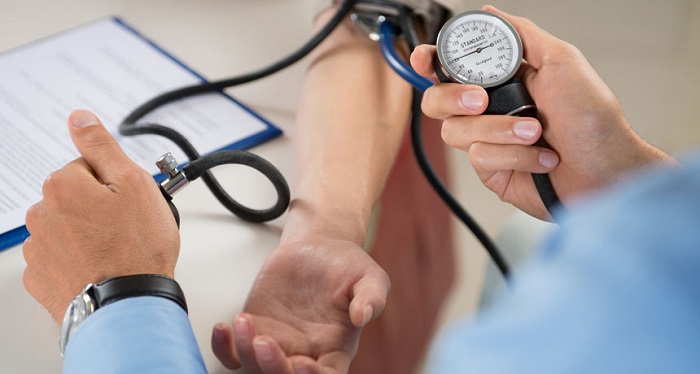Heart Health: New Blood Pressure Guidelines

The American College of Cardiology and the American Heart Association recently updated the blood pressure guidelines, lowering the bar for what is considered high blood pressure. Previously, blood pressure readings below 140/90 were considered normal, and anything about 140/90 was considered high. Now, readings above 130/80 are categorized as high blood pressure, pushing many people into the realm of a hypertension (high blood pressure) diagnosis.
These new guidelines also outline how readings should be taken for more accurate results and encourage increased monitoring throughout the year. The thought of a doctor’s visit alone can raise a person’s blood pressure, and the rush of getting there on time can also lead to a falsely high reading when they arrive. The ACC and AHA recommend giving the patient time to relax sitting in a chair for at least five minutes before assessing their blood pressure. Patients should use the restroom beforehand and should avoid caffeine, exercise or smoking for at least 30 minutes before the test. A diagnosis requires two high measurements from two careful readings. Patients should also be checking their blood pressure at home periodically to better understand the pattern or detect a change in normal blood pressure between visits.
The new treatment guidelines are based on whether the patient currently has cardiovascular disease and what their risk of a cardiovascular event is within the next 10 years (calculated by a widely used formula). For those who are hypertensive but do not have cardiovascular disease and have less than 10% risk, lifestyle changes such as following a heart-healthy diet and exercise plan are the first line of treatment.
The new guidelines recommend medication and lifestyle changes if a patient falls into one of three categories:
- If their risk is less than 10% but their blood pressure is over 140/90
- If a patient has any kind of cardiovascular disease and stage 1 hypertension
- If they have no existing cardiovascular disease but a significant risk of developing it (over 10% risk within the next 10 years)
A heart-healthy diet calls for increasing the amount of fruits and vegetables you eat while decreasing consumption of foods containing high amounts of sodium. Exercise is also important in preventing and managing high blood pressure; even moderate exercise such as walking several times a week can help. Talk to your doctor about risk factors and strategies to keep your blood pressure in check.
Story Credit: http://myfox8.com/2018/02/16/heart-health-new-blood-pressure-guidelines/


